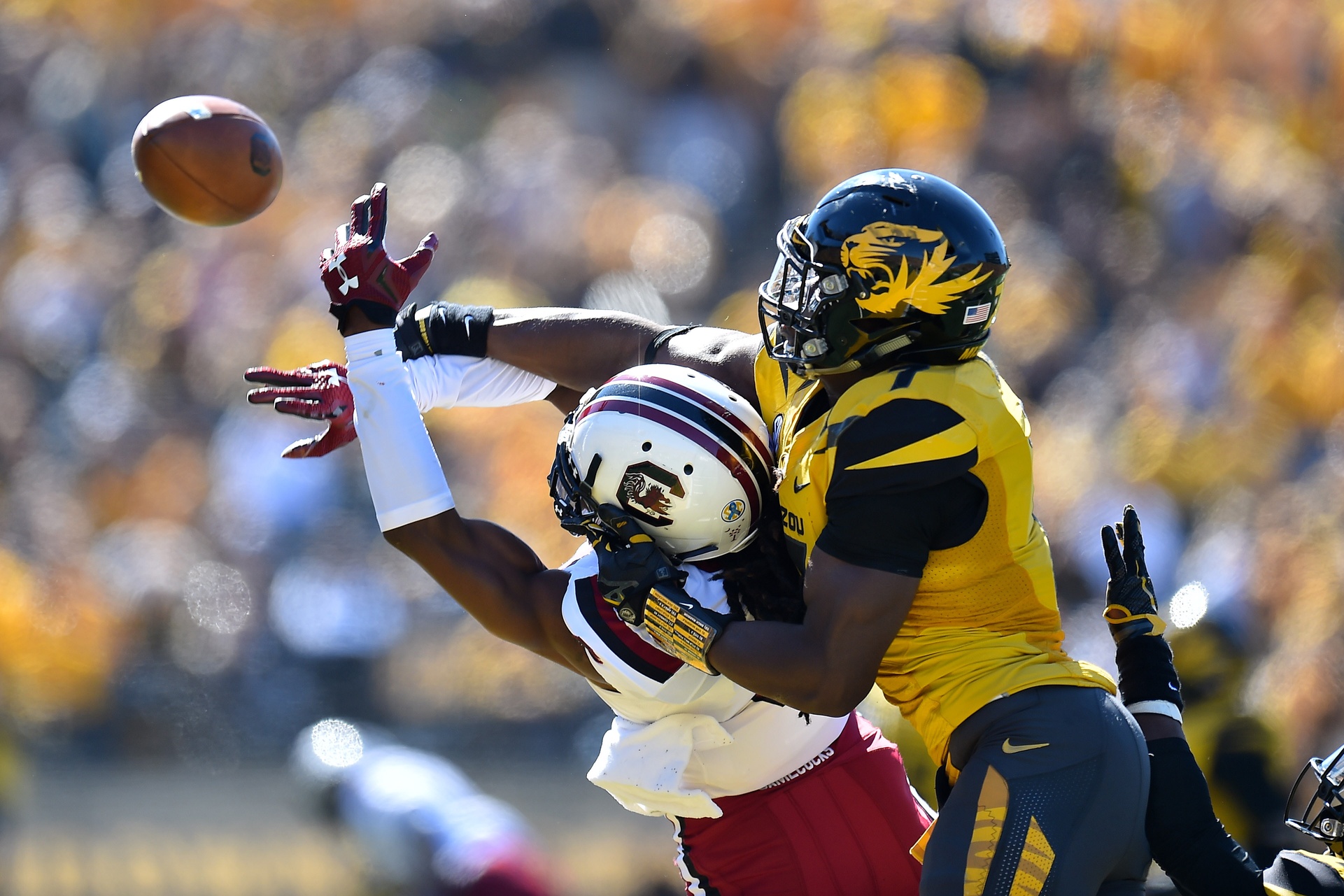
Coaching search: Which is the better SEC job — Missouri or South Carolina?
By Randy Capps
Published:
It’s the silly season for FBS coaching changes, and the coaching carousel has already started spinning.
Two places it will eventually stop are Missouri and South Carolina. Both schools toil in the SEC East, and both are moving on from one of the best coaches in each school’s history — Steve Spurrier at South Carolina and Gary Pinkel at Mizzou.
It’s always fun to rank the open coaching jobs each year, so why not compare life at the two Columbias?
Which job is better? Let’s break it down:
MONEY
Both schools ranked in the top 20 nationally for what they were paying their respective coaches in 2014. Spurrier made a little more than $4 million this season, while Pinkel made around $3.76 million.
Assistant coaches also make slightly more money at South Carolina, with both co-defensive coordinators Lorenzo Ward and Jon Hoke checking in at around $750,000 a year.
It seems likely that both schools will stay in that ballpark when hiring new coaches, and unless we hear differently, the Gamecock coach should be making a bit more money than his Missouri counterpart.
Advantage: South Carolina
RECRUITING
The biggest complaint about the tail end of the Spurrier era at South Carolina was the drop in recruiting. But even in the midst of a few down years, because of its proximity to Georgia, Florida, North Carolina and Virginia, the Gamecocks have an easier time nabbing high schoolers from those states.
In 2014, South Carolina ranked ninth in the SEC in recruiting. Missouri was 13th.
Here’s a breakdown of each team’s recruiting record in the conference since Missouri joined the league:
| School | 2014 | 2013 | 2012 |
| South Carolina | 9 | 8 | 7 |
| Missouri | 13 | 14 | 11 |
Even with Spurrier’s age and the constant rumors of his retirement affecting the program in recruiting, South Carolina’s floor was still high than the Tigers.
The ceiling is higher, too.
Advantage: South Carolina
HISTORY AND TRADITION
It could be safely argued that both schools are coming off the best sustained time in the history of their respective programs.
South Carolina had one 10-win season (1984) before Spurrier reeled off three-straight 11-win seasons in 2011-13. Spurrier guided the Gamecocks to one SEC division title. The program has played in 20 bowl games with an 8-12 mark — and Spurrier was responsible for five of those wins.
Missouri has been around a little longer and played in 31 bowl games with a 15-16 mark. Pinkel won two division titles in the Big 12, two more in the SEC and took the team to 10 bowls and won six of them. Pinkel also topped the 10-win mark on five different occasions.
Advantage: Missouri
INTANGIBLES
Both schools have a bit of baggage these days.
At South Carolina, moving on from the Steve Spurrier era will be challenging. The next coach will be replacing a larger-than-life personality.
The recruiting structure needs an overhaul after a few down years, and with Clemson showing good momentum on the field and on the recruiting trail, the next coach will have to work hard to keep the top talent from joining their in-state rival — not to mention the rest of the SEC.
Replacing Gary Pinkel won’t be easy, either. He’s one of the most successful coaches in school history, and is only stepping aside because of his illness. The pressure will be on to “carry on his legacy,” no mean feat considering the current state of the roster (especially on offense).
One can’t overlook the lasting impact of the football players’ threatened boycott earlier this season, either. Many of those social issues are still there, and those aren’t the sort of headlines that help a program recruit top talent — or coaches.
Advantage: Push
In short, both are great jobs. Both are in college football’s most prestigious and demanding conference, and the new coach at either school will face the same high expectations.
But with a little more money to offer a head coach and his staff, and a more natural recruiting base from which to draw, the job in Columbia, S.C., is just a tad bit better.
Randy Capps is a contributing writer for Saturday Down South. He covers SEC football, South Carolina and Georgia.






